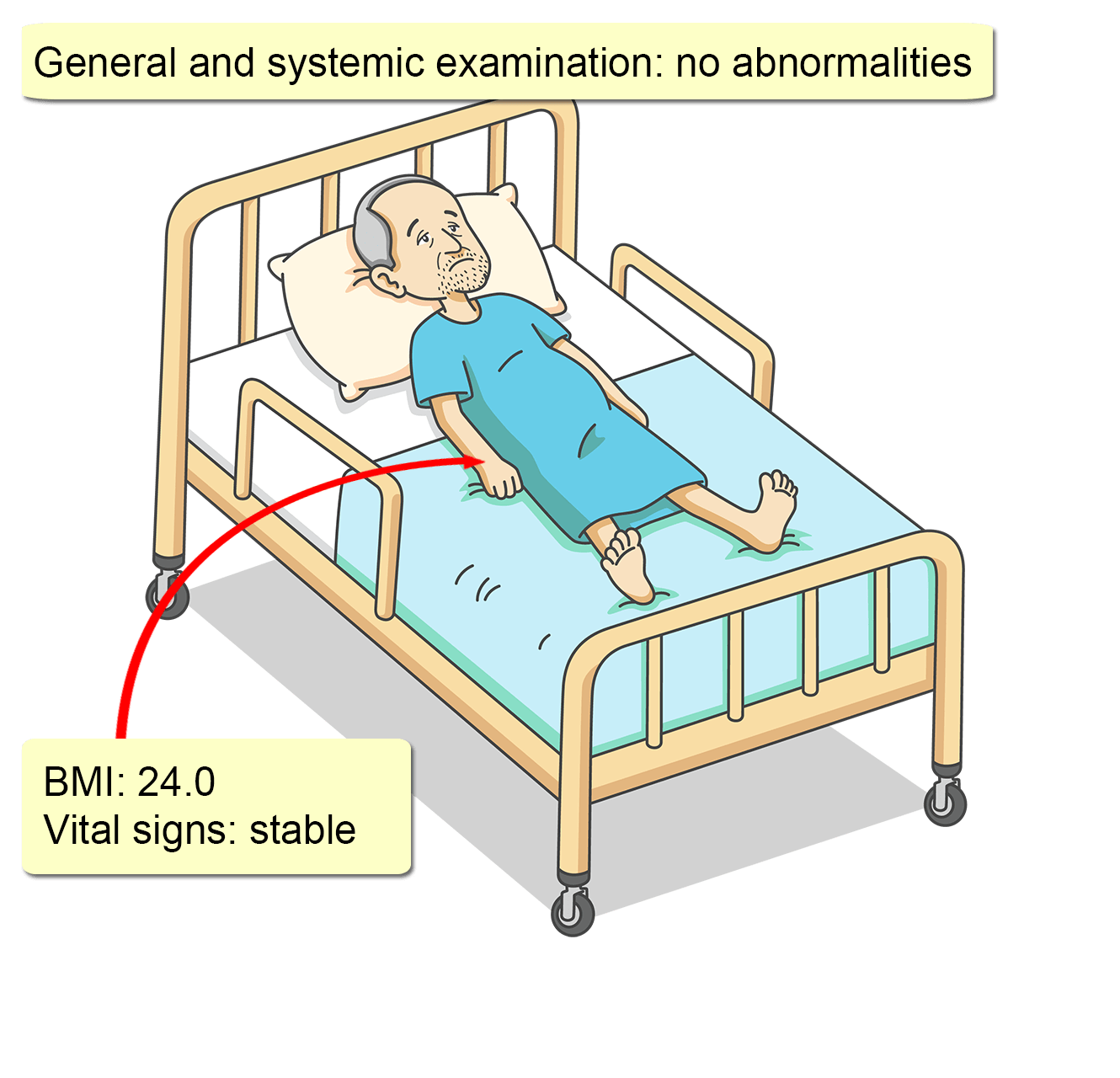Continuous
1
View details
A 54-year-old man presents with profuse watery diarrhea for two months. The diarrhea persists despite fasting and occurs mainly at night. The stools are odorless, without blood or mucus. There is no history of significant weight loss. He was in good health before this. He saw several primary care practitioners over the past one month. He was prescribed a course of loperamide and then a course of metronidazole. However, his symptoms remained unchanged. He is not on any medications right now, including over-the-counter drugs or herbal medications. There is no history of laxative abuse. His medical, surgical, and family histories are unremarkable. He has no known allergies. There is no history of recent foreign or interstate travel.
At presentation, he is mildly dehydrated. His vital parameters are stable. A full blood count, renal and liver profiles are normal. A electrolyte assay is significant for serum potassium of 2.6 mEq/L (normal: 3.5-5.5) and serum calcium of 12.1 mg/dL (normal: 8.5-10.5). An arterial blood gas assay shows non-anion gap metabolic acidosis with a pH of 7.15 (normal: 7.35-7.45) and serum bicarbonate of 6.4 mmol/L (normal: 22-28). He is stabilized and resuscitated. Further investigation reveals a serum TSH of 1.5 mIU/L (normal: 0.4-4.0); a fecal osmotic gap of 15 mmol/L (normal: 50-100); and no leukocytes, bacteria, viruses, fungi, or parasites on stool analysis.

